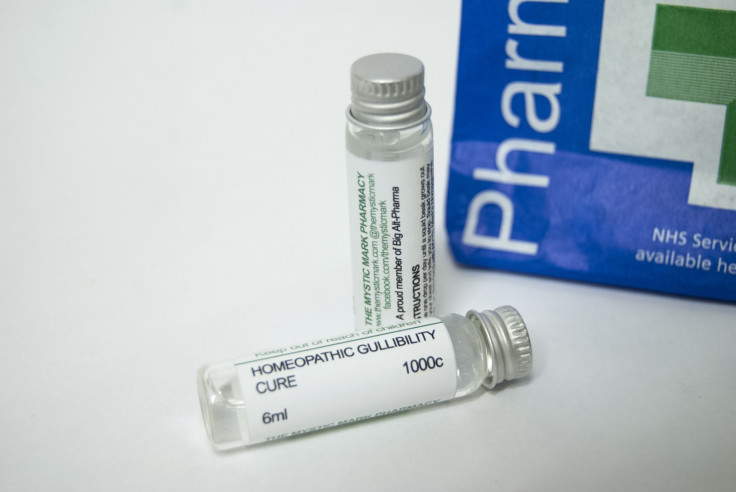Homeopathy at risk of being blacklisted from NHS following crunch talks in 2016

Health authorities in the UK are considering banning doctors from prescribing homeopathic remedies on the NHS as the Government looks to rein in spending. The Government spends a reported £4m a year on homeopathy in the UK, but many argue that the treatment, which is based on highly diluted substances, is scientifically unproven and that it is a placebo.
Ministers will meet next year to discuss potentially blacklisting doctors from prescribing homeopathy. Although it is not readily available in every area of the UK, certain NHS homeopathic centres have been established within the country. However, because there are no legal regulations surrounding homeopathy, anyone is free to practice, regardless of qualifications.
Speaking to the BBC, George Freeman, the Minister for Life Sciences, said: "With rising health demands, we have a duty to make sure we spend NHS funds on the most effective treatments. We are currently considering whether or not homeopathic products should continue to be available through NHS prescriptions. We expect to consult on proposals in due course."
Furthermore, the NHS website says that "there is no good-quality evidence that homeopathy is effective as a treatment for any health condition".
Earlier this year, the Australian government ruled homeopathy as being ineffective. The National Health and Medical Research Council (NHMRC) of Australia reviewed some 1,800 research papers and concluded that the practice can even "put your health at risk" if one was to ignore conventional medicine. It added that there is no evidence that homeopathy works better than a placebo.
"People who choose homeopathy may put their health at risk if they reject or delay treatments for which there is good evidence for safety and effectiveness," read a statement from the health body.
© Copyright IBTimes 2025. All rights reserved.






















